Find Help
More Items From Ergsy search
-
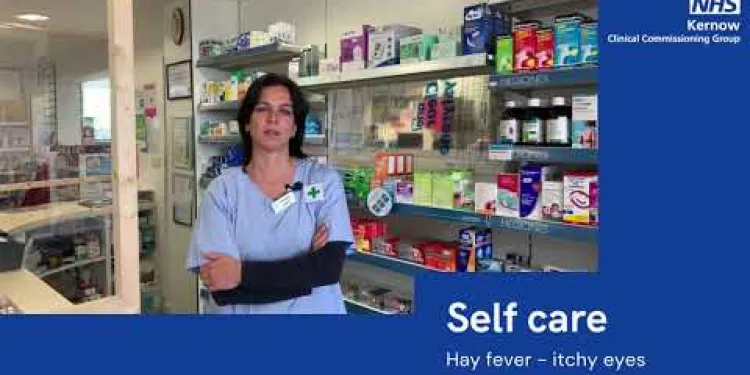
Self care - hay fever itchy eyes
Relevance: 100%
-
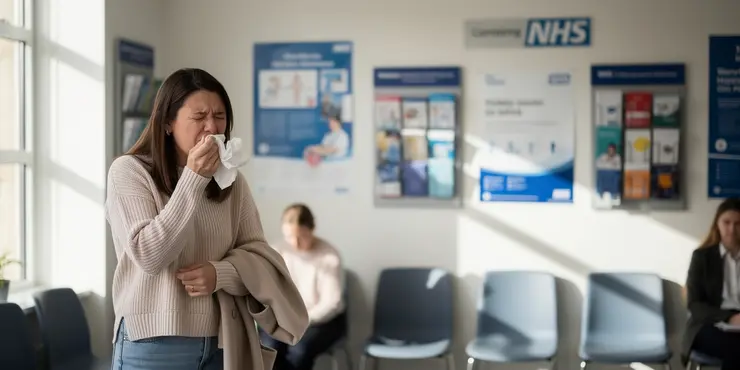
What is hay fever?
Relevance: 57%
-
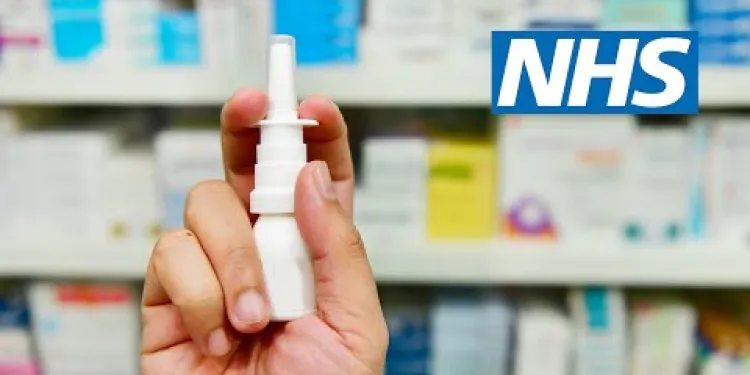
Hay fever advice | NHS
Relevance: 57%
-
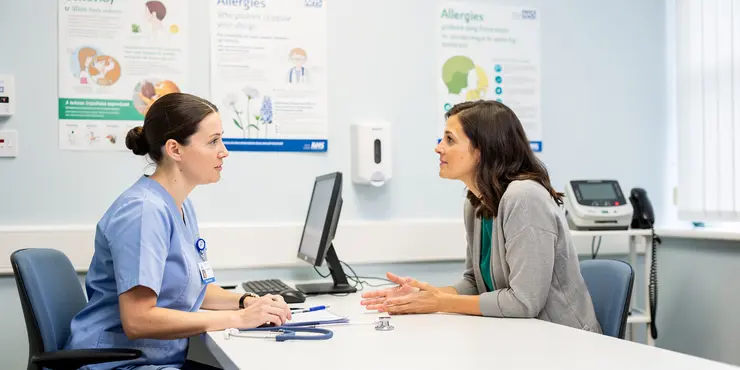
What are the common symptoms of hay fever?
Relevance: 56%
-

Can hay fever symptoms mimic other conditions?
Relevance: 56%
-
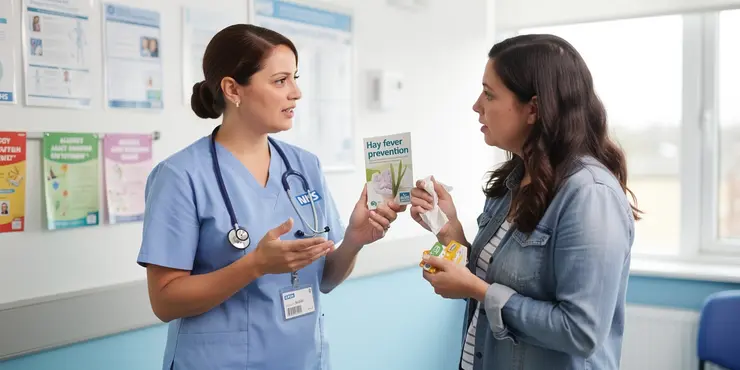
Can hay fever be prevented?
Relevance: 53%
-
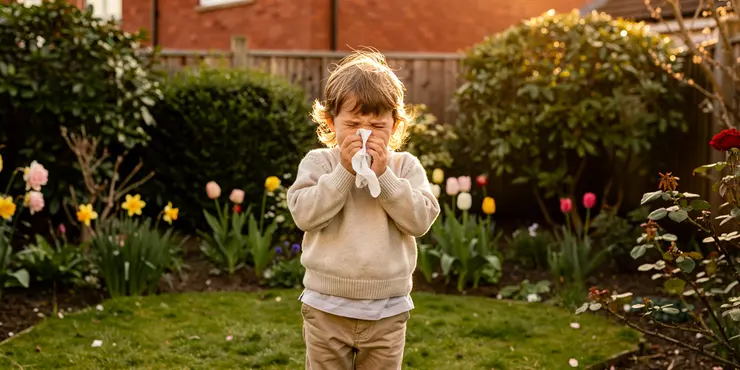
Can children develop hay fever?
Relevance: 53%
-

Do pets contribute to hay fever?
Relevance: 52%
-

Can hay fever occur year-round?
Relevance: 51%
-
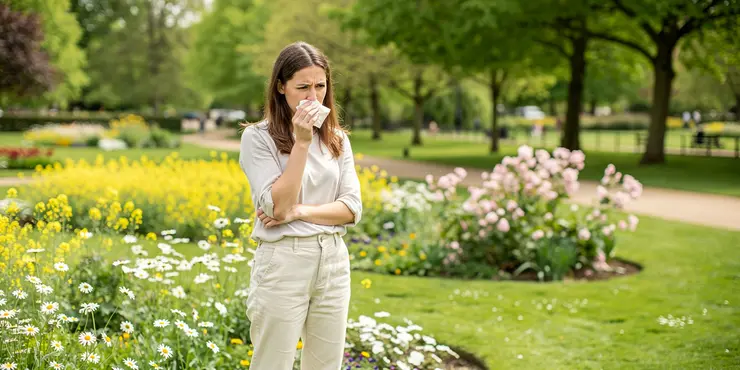
Are some people more prone to hay fever?
Relevance: 50%
-
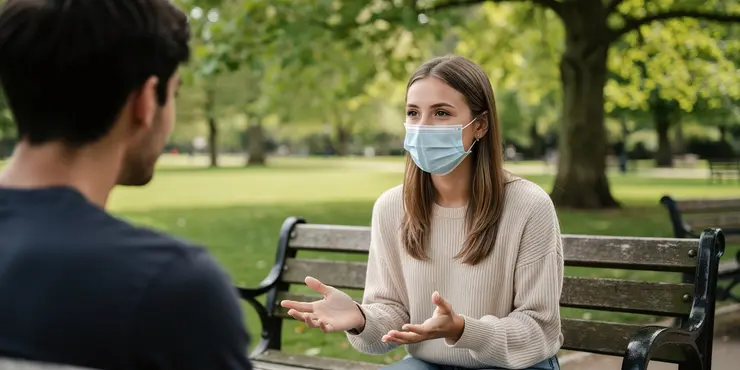
Do masks help with hay fever?
Relevance: 50%
-
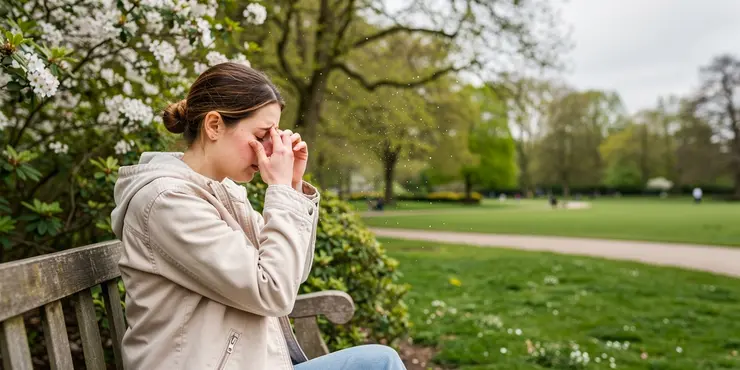
How does pollen affect people with hay fever?
Relevance: 50%
-
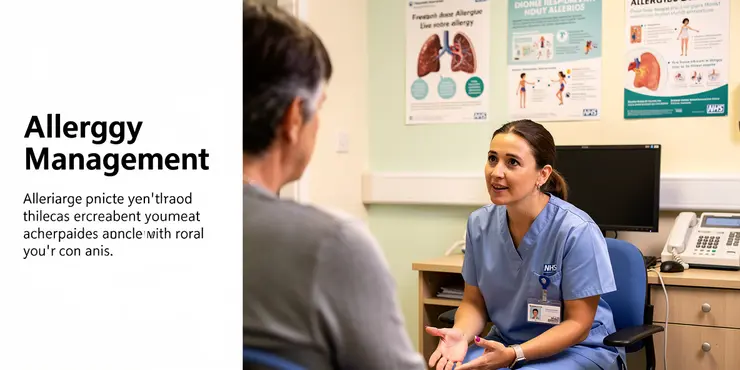
Is there a link between hay fever and asthma?
Relevance: 49%
-
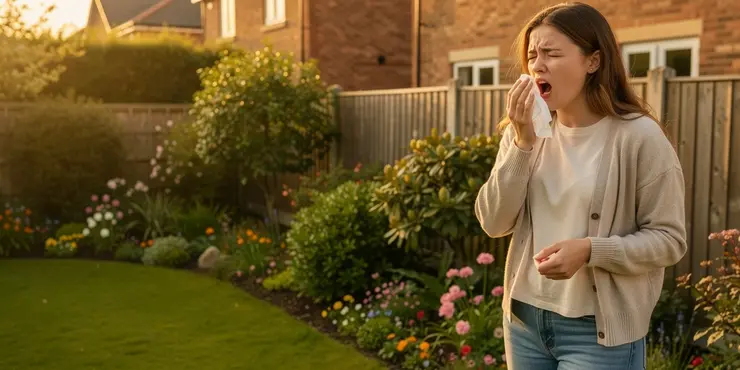
Experts Warn of Rising Hay Fever Cases as Pollen Counts Surge
Relevance: 48%
-
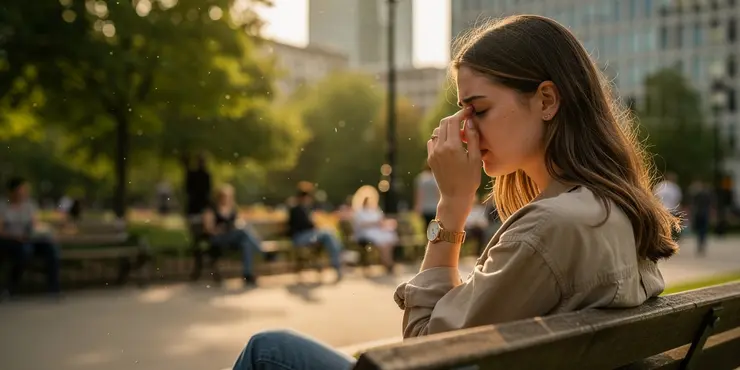
Is hay fever more common in urban areas?
Relevance: 47%
-

Can diet influence hay fever symptoms?
Relevance: 47%
-
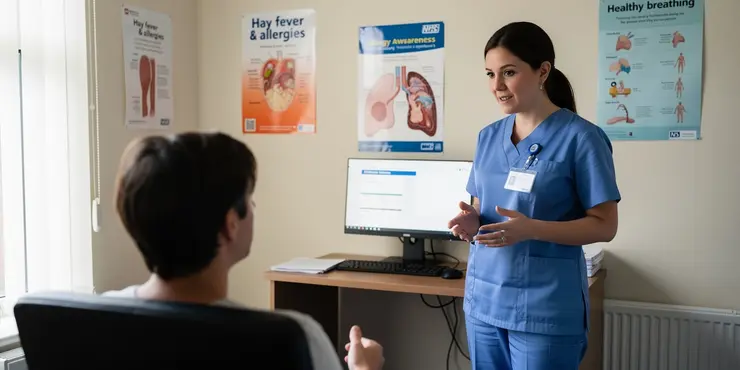
Do all plants produce pollen that causes hay fever?
Relevance: 46%
-
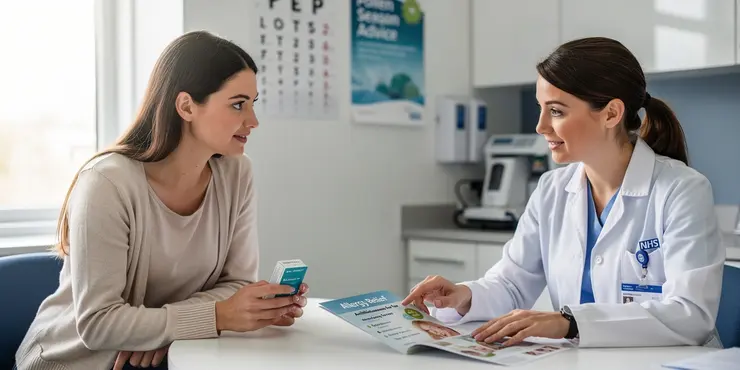
Antihistamines how they work with hay fever
Relevance: 46%
-
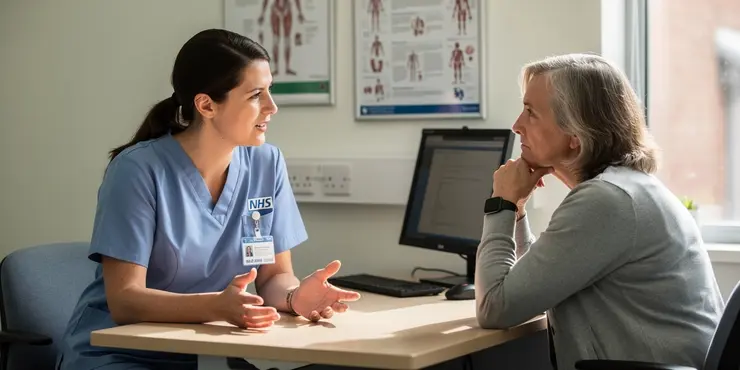
Why are experts warning of rising hay fever cases?
Relevance: 44%
-
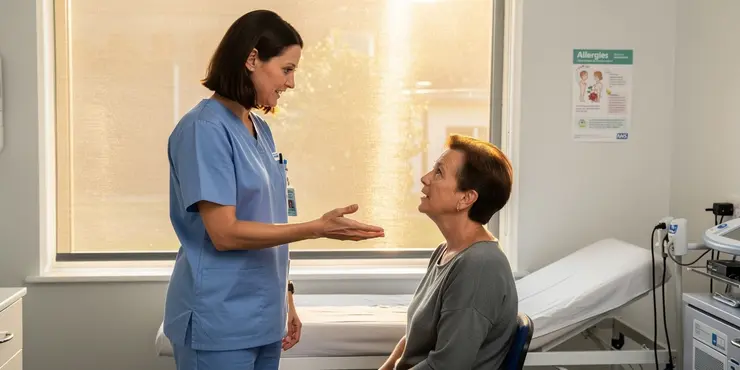
Can mosquito screens help reduce hay fever symptoms?
Relevance: 42%
-
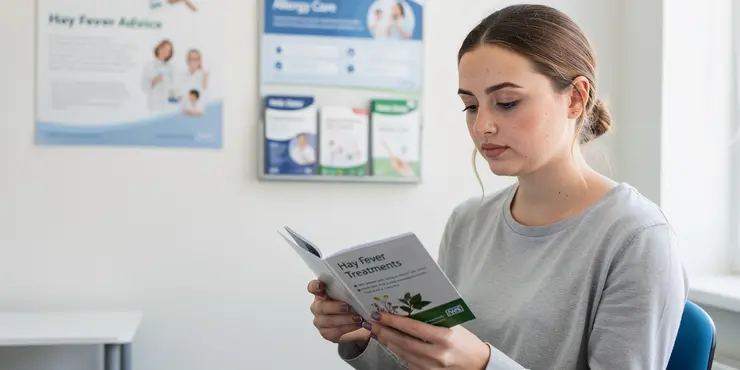
Are there any treatments for hay fever?
Relevance: 38%
-
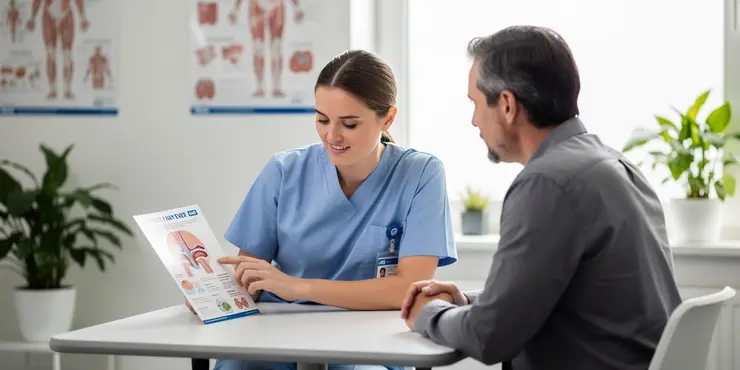
How long does a typical hay fever season last?
Relevance: 33%
-
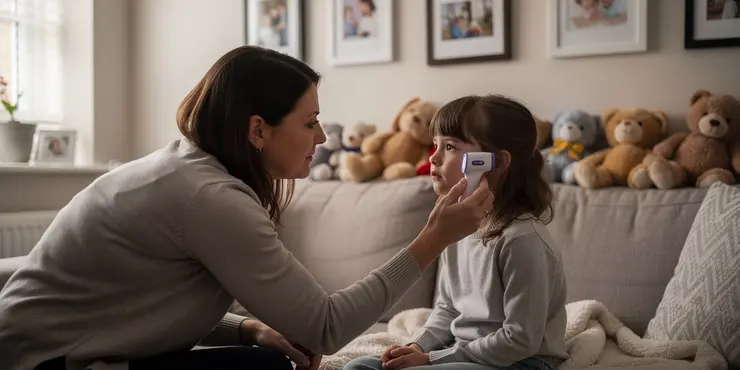
Caring for a child with fever | NHS
Relevance: 29%
-
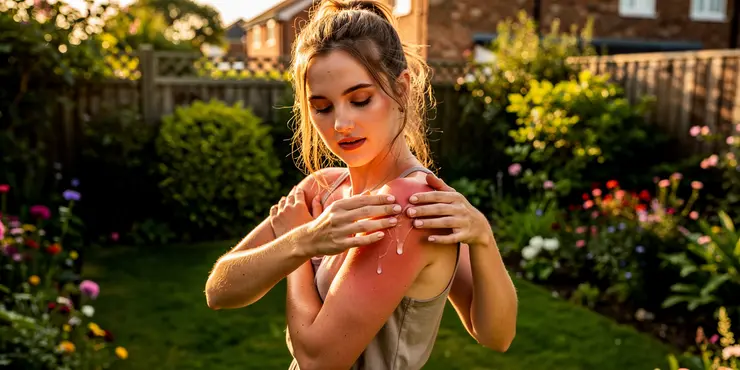
Self care - sunburn
Relevance: 28%
-
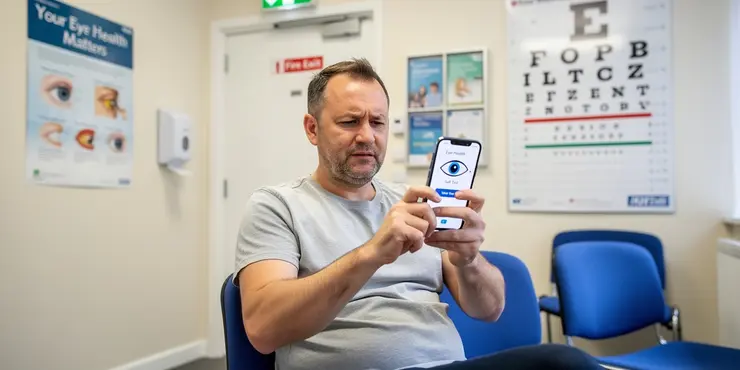
How does self testing for eye patients work?
Relevance: 27%
-
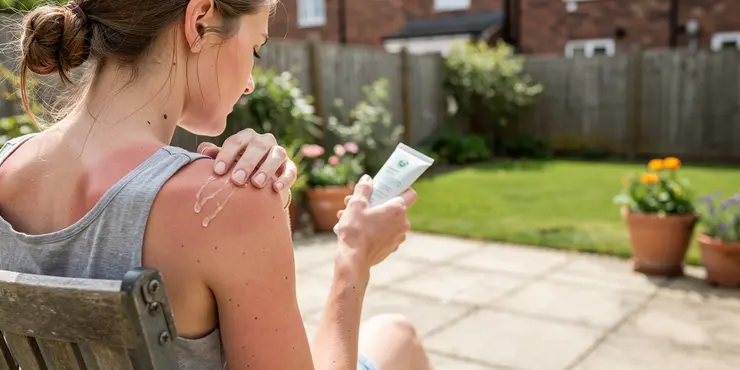
Self care - sunburn
Relevance: 27%
-
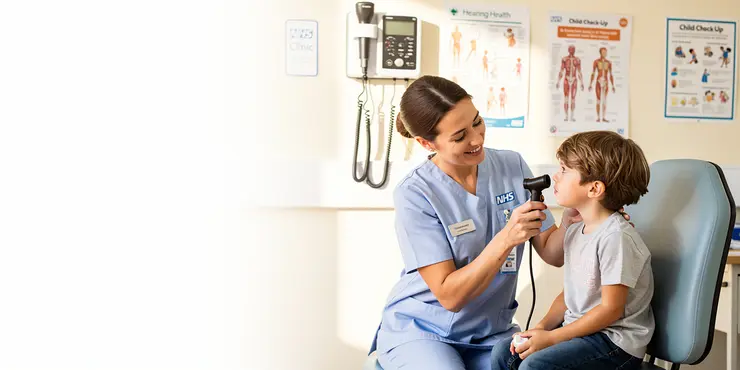
Self care: Treating ear infections
Relevance: 26%
-
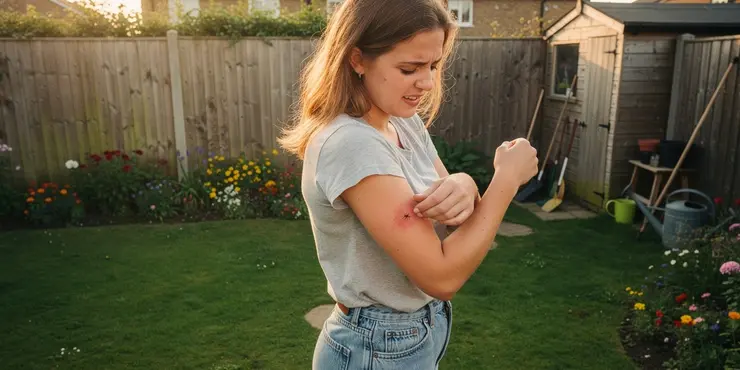
Why are mosquito bites itchy?
Relevance: 24%
-
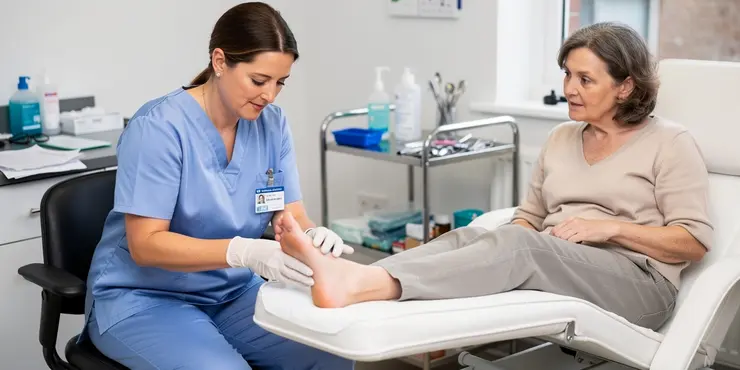
Self care for your feet - Podiatrist
Relevance: 24%
-

How to care for someone with chicken pox
Relevance: 23%
-
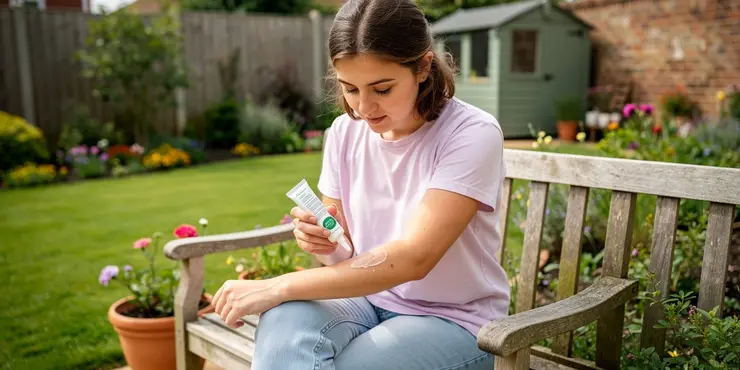
Self care - insect bites
Relevance: 23%
-
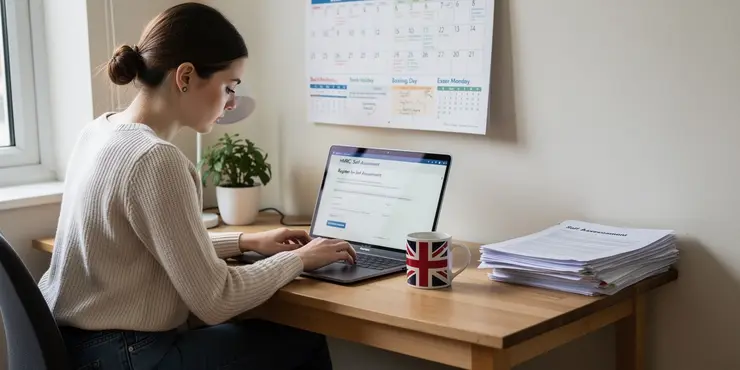
How do I register for Self Assessment?
Relevance: 23%
-

What is a Self Assessment tax return?
Relevance: 22%
-
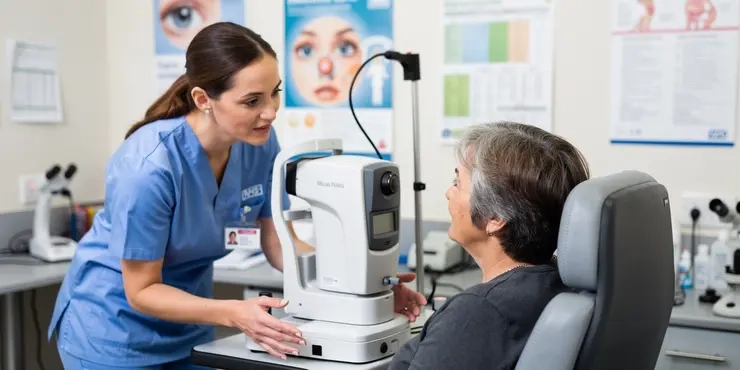
Diabetes Eye Screening
Relevance: 22%
-

Can dengue fever be contracted in the UK?
Relevance: 22%
-
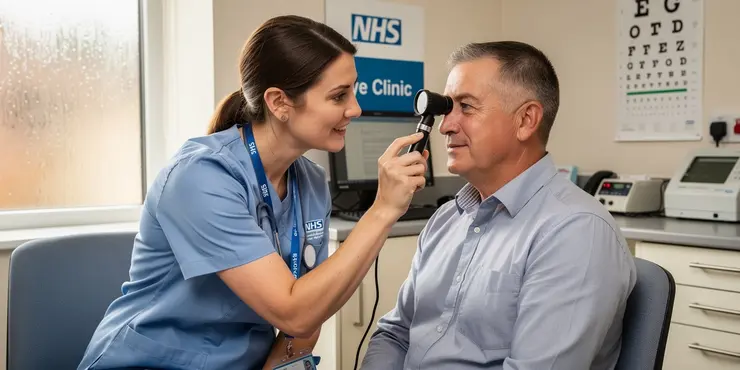
What is hypotony in the eye?
Relevance: 22%
-
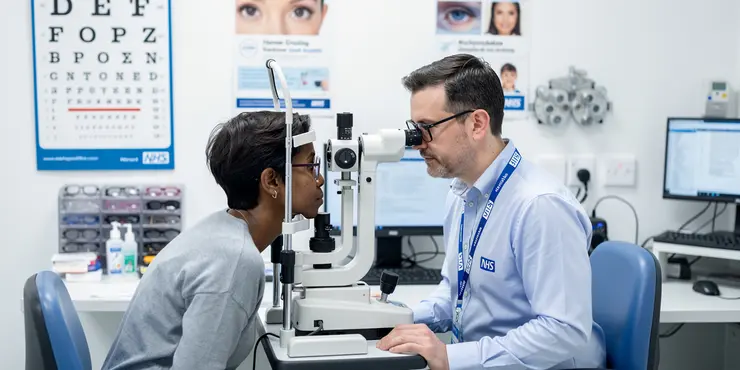
Are self-tests a substitute for professional eye exams?
Relevance: 22%
-
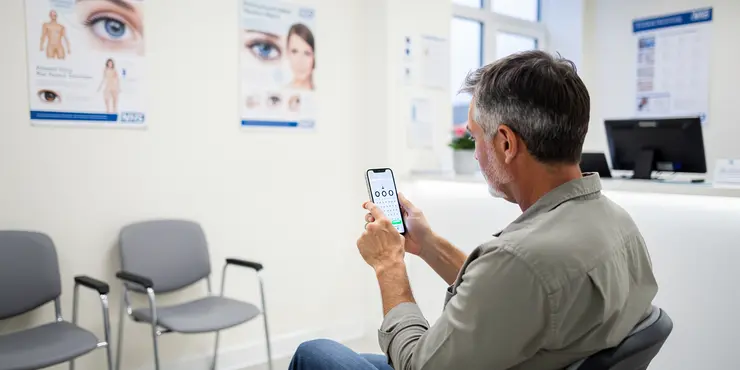
What are the limitations of self-testing for eyes?
Relevance: 22%
-
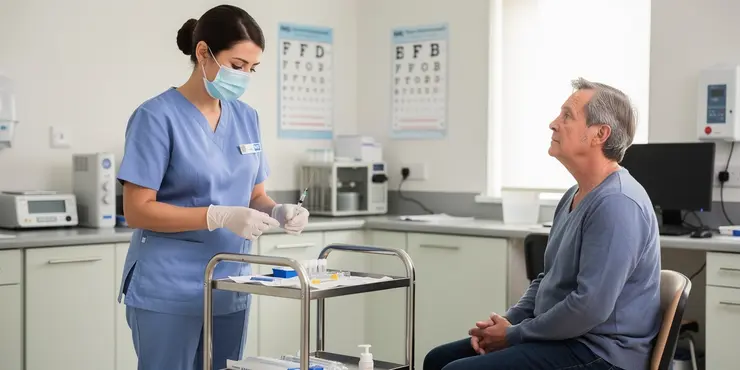
Eye Injections at Royal Bournemouth Hospital
Relevance: 22%
-
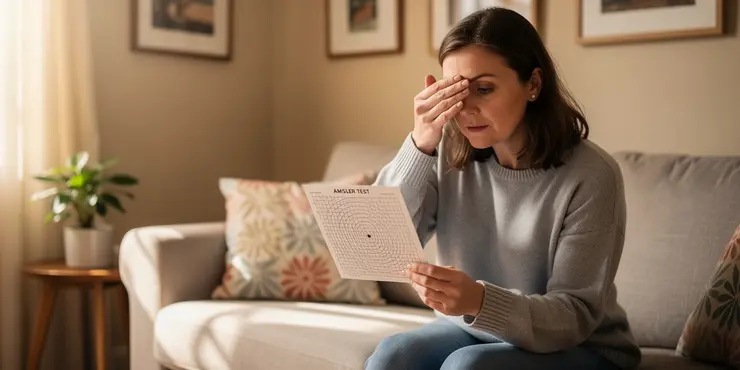
What is self-testing for eye patients?
Relevance: 22%
Self-Care for Hay Fever Itchy Eyes
Understanding Hay Fever
Hay fever, also known as allergic rhinitis, is a common allergic condition affecting many individuals in the United Kingdom. It occurs when the immune system overreacts to pollen from trees, grass, and weeds, resulting in various symptoms including sneezing, runny nose, and itchy eyes. Itchy eyes can be particularly bothersome and can significantly affect daily activities.Identifying Symptoms
The symptoms of hay fever can vary but typically include red, itchy, and watery eyes. These symptoms are a result of the body releasing histamines in response to allergens like pollen. Additional symptoms might include nasal congestion, a persistent cough, and fatigue. Recognizing these symptoms early can help in managing and alleviating discomfort.Effective Self-Care Strategies
Over-the-Counter Remedies
Antihistamines, available in local UK pharmacies, can help relieve itchy eyes. Products like loratadine, cetirizine, and chlorphenamine are commonly used. Eye drops containing antihistamines or mast cell stabilizers can also provide direct relief.Avoiding Allergens
Limiting exposure to pollen can significantly reduce symptoms. Staying indoors during peak pollen times, typically in the morning and late evening, can help. Close windows and use air purifiers to reduce indoor pollen levels. Wearing sunglasses when outside can also help protect eyes from pollen.Maintaining Eye Hygiene
Regularly rinsing your eyes with cool water or using saline eye drops can help remove allergens and soothe irritation. Avoid rubbing your eyes, as this can worsen symptoms and lead to further irritation.Natural Remedies
Some individuals find relief using natural remedies. Cold compresses can reduce inflammation and provide soothing relief. Additionally, consuming local honey is believed by some to help build immunity to local pollen, though scientific evidence is limited.When to Seek Professional Help
If self-care strategies do not provide sufficient relief or if symptoms are severe, it is advisable to consult a healthcare professional. An allergist can offer more targeted treatments such as prescription medications or allergy shots. In some cases, they might also conduct allergy testing to identify specific triggers. Taking proactive steps to manage hay fever symptoms can lead to a more comfortable and enjoyable spring and summer season. By combining self-care strategies with professional guidance when necessary, individuals in the UK can effectively alleviate itchy eyes and other related symptoms.Self-Care for Hay Fever Itchy Eyes
Understanding Hay Fever
Hay fever is a common allergy in the UK. It's also called allergic rhinitis. It happens when you react to pollen from trees, grass, and weeds. This can make you sneeze, have a runny nose, and get itchy eyes. Itchy eyes are annoying and can affect what you do every day.Identifying Symptoms
Hay fever symptoms include red, itchy, and watery eyes. These happen because your body makes something called histamines when you touch pollen. You might also get a stuffy nose, a cough, and feel tired. Knowing these symptoms helps you manage them better.Effective Self-Care Strategies
Over-the-Counter Remedies
You can buy medicine for itchy eyes in shops. Antihistamines like loratadine, cetirizine, and chlorphenamine can help. Eye drops with special medicine can also make your eyes feel better.Avoiding Allergens
Try to stay away from pollen. Stay indoors in the morning and late evening when pollen is high. Close windows and use air cleaners. Wear sunglasses outside to keep pollen away from your eyes.Maintaining Eye Hygiene
Keep your eyes clean. Rinse them with cool water or use saline eye drops. Don't rub your eyes. This can make them feel worse.Natural Remedies
Some people feel better with natural remedies. Put a cold cloth on your eyes to reduce swelling. Some say eating local honey helps with pollen allergies, but there isn't much proof.When to Seek Professional Help
If these tips don't help or if your symptoms are really bad, talk to a doctor. An allergy doctor can give you stronger medicine or allergy shots. They might also test you to see what things you are allergic to. Taking care of hay fever can help you enjoy spring and summer more. Use these self-care tips and see a doctor if needed to help with itchy eyes and other symptoms.Frequently Asked Questions
What is hay fever?
Hay fever, also known as allergic rhinitis, is an allergic reaction to pollen, dust mites, or mould spores. It commonly causes symptoms like sneezing, a runny or blocked nose, and itchy eyes.
Why do my eyes itch when I have hay fever?
Itchy eyes occur because allergens like pollen cause your immune system to release histamines, which result in inflammation and irritation around the eyes.
How can I relieve itchy eyes from hay fever?
You can relieve itchy eyes by using antihistamine eye drops, artificial tears, or a cold compress. Over-the-counter antihistamine tablets and avoiding allergens can also help.
Are antihistamine eye drops effective for hay fever?
Yes, antihistamine eye drops are specifically designed to reduce itching, redness, and swelling in the eyes caused by allergies.
Can I use regular lubricating eye drops for itchy eyes?
Lubricating eye drops, or artificial tears, can help soothe dry or irritated eyes but may not address the underlying allergic reaction as antihistamine eye drops would.
Should I wear sunglasses if I have hay fever?
Wearing sunglasses can help protect your eyes from pollen and other allergens, reducing the likelihood of itchy eyes.
What are some natural remedies for itchy eyes from hay fever?
Natural remedies include cold compresses, rinsing your eyes with saline solution, using a humidifier, and applying chamomile tea bags to the eyes.
When is hay fever season in the UK?
In the UK, hay fever season typically runs from late March to September, peaking between late spring and early summer.
Can I prevent hay fever symptoms?
You can reduce symptoms by staying indoors on high pollen days, keeping windows closed, using air purifiers, and showering after being outdoors to remove pollen.
Are there any prescription medications for hay fever?
If over-the-counter remedies aren't sufficient, your GP may prescribe stronger antihistamines, corticosteroid nasal sprays, or other treatments.
Is it safe to use a cold compress for itchy eyes?
Yes, using a cold compress is a safe and effective way to reduce eye itching and swelling caused by hay fever.
How often should I use antihistamine eye drops?
Follow the instructions on the packaging or consult your pharmacist. Generally, they can be used 1-2 times per day.
Can wearing contact lenses worsen hay fever symptoms?
Wearing contact lenses can sometimes trap allergens against your eyes, worsening symptoms. Switching to glasses during hay fever season may help.
Should I avoid rubbing my eyes if they are itchy from hay fever?
Yes, rubbing your eyes can irritate them further and may make symptoms worse. Use a cold compress or eye drops instead.
Does diet affect hay fever symptoms?
Some studies suggest that a diet rich in fruits, vegetables, and omega-3 fatty acids may help reduce inflammation and improve hay fever symptoms.
What is hay fever?
Hay fever is when you sneeze a lot and have a runny or blocked nose. It happens when you are near pollen from grass, trees, or flowers. Your eyes might itch and water too.
Helpful Tips:
- Stay indoors on days when there's a lot of pollen.
- Wash your face and hands after being outside to get rid of pollen.
- Ask an adult to help you use medicines for hay fever.
Hay fever is when you have an allergy. It can be caused by things like pollen from flowers, tiny bugs called dust mites, or mould. This can make you sneeze a lot, have a runny or stuffy nose, and itchy eyes.
Why Do My Eyes Itch When I Have Hay Fever?
Your eyes might itch because of hay fever. This happens when your body reacts to tiny bits from plants called pollen. Pollen is in the air, especially in spring and summer. When it gets into your eyes, it can make them feel itchy and watery.
Here are some tips to help:
- Wear sunglasses to keep pollen out of your eyes.
- Stay indoors when there is lots of pollen outside.
- Use eye drops to help your eyes feel better.
- Ask an adult for medicine that helps with hay fever.
Itchy eyes happen because things like pollen make your body release chemicals called histamines. These chemicals make the eyes sore and red.
How can I make my itchy eyes feel better from hay fever?
Here are some simple steps to help:
- Try not to rub your eyes. Rubbing can make the itching worse.
- Wash your hands and face often. This helps remove pollen.
- Use a cold, wet cloth on your eyes. It can help them feel better.
- Stay inside when there is a lot of pollen outside. Keep the windows closed.
- Use special eye drops for hay fever. Ask an adult to help you get them.
- Wear sunglasses outside. They can help keep pollen away from your eyes.
Remember to tell someone if your eyes are very itchy. They can help you.
You can stop your eyes from itching by using special eye drops, fake tears, or a cold cloth. You can also use allergy medicine from the store and stay away from things that make you sneeze.
Do eye drops for allergies help with hay fever?
Eye drops for allergies might help with hay fever. They can make your eyes feel better.
If your eyes are itchy or watery from hay fever, these drops can help.
Make sure to ask a doctor if the drops are right for you.
Reading Tools: You can also use text-to-speech to hear the information.
Yes, allergy eye drops can help with itchy, red, and swollen eyes because of allergies.
Can I use normal eye drops for itchy eyes?
Eye drops can help make dry or sore eyes feel better. These are called "lubricating eye drops" or "artificial tears." But, if you have allergies, these drops do not help with that. For allergies, there are special eye drops called "antihistamine eye drops" that work better.
If you find reading hard, you can try listening to books or asking someone to read with you. Using a finger to follow along with each word can also help.
Can sunglasses help with hay fever?
Do you have hay fever? Hay fever makes your eyes itchy and uncomfortable.
Wearing sunglasses can help. Sunglasses can stop pollen getting into your eyes.
You should try it and see if it helps you.
Also, you can try:
- Keeping windows closed
- Washing your face and hands to remove pollen
- Taking medicine for hay fever if needed
Wearing sunglasses can help keep your eyes safe from pollen and other things that make allergies worse. This can stop your eyes from feeling itchy.
What can I use to help my itchy eyes from hay fever?
Do your eyes itch because of hay fever? Here are some simple ideas to help:
- Cold Compress: Put a cool, wet cloth on your eyes to feel better.
- Splash cool water: Gently rinse your eyes with cool water.
- Stay inside: Keep away from places with lots of pollen.
- Wear sunglasses: Protect your eyes when you go out.
Try these things to help your itchy eyes feel better. You can also ask an adult or a doctor for more help.
Here are some simple ways to help your eyes feel better:
- Put a cold cloth on your eyes.
- Rinse your eyes with salty water.
- Use a humidifier to make the air less dry.
- Put chamomile tea bags on your eyes.
When does hay fever happen in the UK?
Hay fever happens at certain times of the year. It starts in the spring and can last all summer. This is when plants make pollen. Pollen can make people sneeze and have itchy eyes.
Here are some tips to feel better:
- Stay inside when it's windy and sunny.
- Wear sunglasses to keep pollen out of your eyes.
- Ask an adult about medicine that might help.
- Keep windows closed at home and in the car.
If you need help, ask a teacher or a parent.
In the UK, hay fever usually happens between the end of March and September. It is worst in late spring and early summer.
How can I stop hay fever from making me feel bad?
You can feel better by staying inside when there's lots of pollen outside. Keep the windows closed. Use air cleaners to help clean the air. Take a shower after playing outside to wash pollen off.
Can a doctor give you medicine for hay fever?
If the medicine you can buy at the store isn't helping, your doctor might give you something stronger. They might give you stronger allergy pills, sprays for your nose, or other treatments to help you feel better.
Is it okay to use something cold on itchy eyes?
A cold cloth can help when your eyes feel itchy or swollen from hay fever. It is safe and works well.
How often can I use eye drops for allergies?
Eye drops for allergies help stop your eyes from itching and swelling. It's important to know how much to use them:
- Ask a grown-up or a doctor first. They will know what's best for you.
- Follow the instructions on the bottle. They will tell you when to use them.
- If your eyes still hurt or itch, ask for help. You might need more advice.
Tools to help:
- Ask someone you trust to remind you when to use the drops.
- Set a timer to help remember when it's time to use the drops.
Look at the instructions on the box. You can also ask the person who gives you the medicine for help. Usually, you can use them 1 or 2 times each day.
Do contact lenses make hay fever worse?
Some people have hay fever. This means their eyes can get itchy. Contact lenses might make this worse. Ask a doctor for advice if your eyes hurt. Glasses can help on windy days.
Sometimes, contact lenses can get stuff stuck against your eyes, which might make allergies worse. Wearing glasses instead when there's a lot of pollen, like in hay fever season, might help you feel better.
What should I do if my eyes are itchy from hay fever?
If your eyes are itchy, try not to rub them. Rubbing can make the itching worse.
Here are some things you can do instead:
- Use a clean, damp cloth to gently wipe your eyes.
- Put a cold, wet cloth on your eyes for a few minutes.
- Ask an adult to help you use eye drops.
If your eyes keep itching, talk to a doctor or a grown-up for help.
When you rub your eyes, it can make them hurt more. Try not to rub them. Instead, you can use a cold cloth or special eye drops to help them feel better.
Can what you eat change how bad your hay fever feels?
Some studies say that eating lots of fruits and vegetables can help with hay fever. Foods with omega-3, like some fish, might also help. These foods can make inflammation less and hay fever better.
Useful Links
This website offers general information and is not a substitute for professional advice.
Always seek guidance from qualified professionals.
If you have any medical concerns or need urgent help, contact a healthcare professional or emergency services immediately.
Some of this content was generated with AI assistance. We’ve done our best to keep it accurate, helpful, and human-friendly.
- Ergsy carfully checks the information in the videos we provide here.
- Videos shown by Youtube after a video has completed, have NOT been reviewed by ERGSY.
- To view, click the arrow in centre of video.
- Most of the videos you find here will have subtitles and/or closed captions available.
- You may need to turn these on, and choose your preferred language.
- Go to the video you'd like to watch.
- If closed captions (CC) are available, settings will be visible on the bottom right of the video player.
- To turn on Captions, click settings .
- To turn off Captions, click settings again.
More Items From Ergsy search
-

Self care - hay fever itchy eyes
Relevance: 100%
-

What is hay fever?
Relevance: 57%
-

Hay fever advice | NHS
Relevance: 57%
-

What are the common symptoms of hay fever?
Relevance: 56%
-

Can hay fever symptoms mimic other conditions?
Relevance: 56%
-

Can hay fever be prevented?
Relevance: 53%
-

Can children develop hay fever?
Relevance: 53%
-

Do pets contribute to hay fever?
Relevance: 52%
-

Can hay fever occur year-round?
Relevance: 51%
-

Are some people more prone to hay fever?
Relevance: 50%
-

Do masks help with hay fever?
Relevance: 50%
-

How does pollen affect people with hay fever?
Relevance: 50%
-

Is there a link between hay fever and asthma?
Relevance: 49%
-

Experts Warn of Rising Hay Fever Cases as Pollen Counts Surge
Relevance: 48%
-

Is hay fever more common in urban areas?
Relevance: 47%
-

Can diet influence hay fever symptoms?
Relevance: 47%
-

Do all plants produce pollen that causes hay fever?
Relevance: 46%
-

Antihistamines how they work with hay fever
Relevance: 46%
-

Why are experts warning of rising hay fever cases?
Relevance: 44%
-

Can mosquito screens help reduce hay fever symptoms?
Relevance: 42%
-

Are there any treatments for hay fever?
Relevance: 38%
-

How long does a typical hay fever season last?
Relevance: 33%
-

Caring for a child with fever | NHS
Relevance: 29%
-

Self care - sunburn
Relevance: 28%
-

How does self testing for eye patients work?
Relevance: 27%
-

Self care - sunburn
Relevance: 27%
-

Self care: Treating ear infections
Relevance: 26%
-

Why are mosquito bites itchy?
Relevance: 24%
-

Self care for your feet - Podiatrist
Relevance: 24%
-

How to care for someone with chicken pox
Relevance: 23%
-

Self care - insect bites
Relevance: 23%
-

How do I register for Self Assessment?
Relevance: 23%
-

What is a Self Assessment tax return?
Relevance: 22%
-

Diabetes Eye Screening
Relevance: 22%
-

Can dengue fever be contracted in the UK?
Relevance: 22%
-

What is hypotony in the eye?
Relevance: 22%
-

Are self-tests a substitute for professional eye exams?
Relevance: 22%
-

What are the limitations of self-testing for eyes?
Relevance: 22%
-

Eye Injections at Royal Bournemouth Hospital
Relevance: 22%
-

What is self-testing for eye patients?
Relevance: 22%


